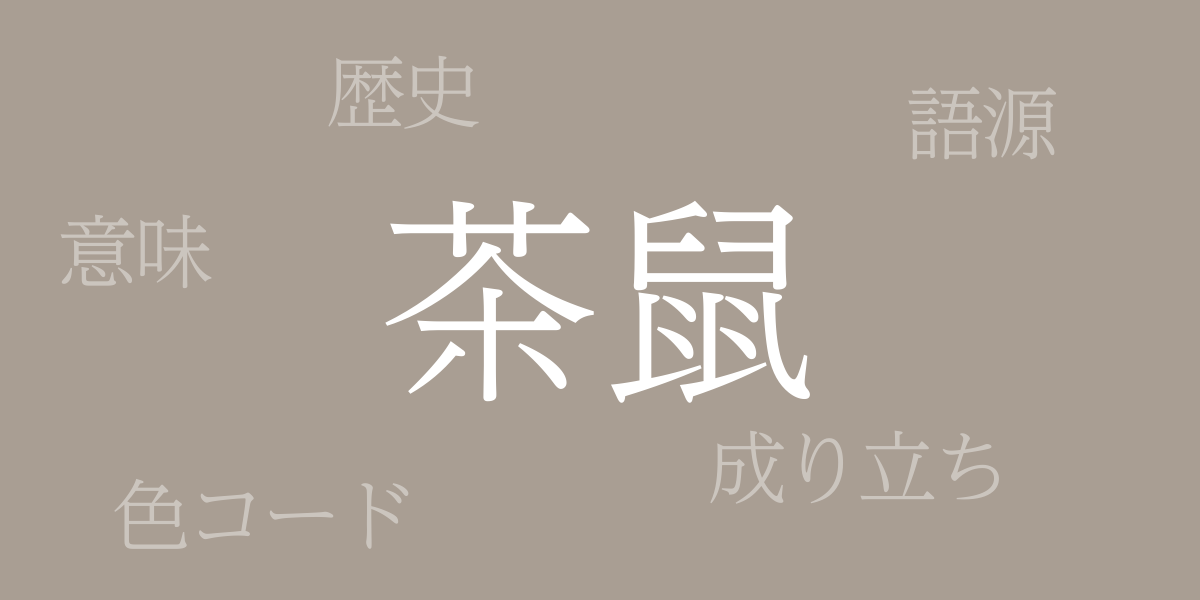Japanese traditional colors, known for their exquisite delicacy and deep cultural roots, captivate people worldwide. Among these, “Chanezu (茶鼠 – ちゃねず)” stands out with its unique hue that evokes the essence of Wa (Japanese harmony). It continues to be cherished in the realms of fashion, design, and art. This article explores the allure of Chanezu, delving into its history, color significance, and international name to deepen global understanding.
About Chanezu (茶鼠 – ちゃねず)
Chanezu is a traditional Japanese color resembling a greyish-brown, literally positioned between ‘tea’ and ‘mouse’ in hue. It’s known for its tranquil and subdued appearance. Often used in traditional Japanese garments and paintings, Chanezu symbolizes nature and adds a unique elegance.
The History of Chanezu
Chanezu has a storied history dating back to the Heian period, revered in aristocratic circles where colors signified social rank and season. It was favored in kimono fabrics for its understated sophistication and chic. In the samurai society, Chanezu was prized for its ability to convey modesty, avoiding ostentation.
Color Codes for Chanezu
Accurate color codes are essential for replicating Chanezu in digital designs and web development:
- HEX: #A99E93
- RGB: R:169 G:158 B:147
- CMYK: C:39 M:38 Y:40 K:0
International Name for Chanezu
Chanezu is known internationally as “Grayish Brown” or “Mousy Brown.” These names reflect the mixed grey and brown tones of the color, facilitating an understanding of Chanezu in global color communication.
Summary of Chanezu
Chanezu, with its quietly beautiful shade nurtured by Japan’s natural and historical landscape, symbolizes Japanese tradition and culture. Its rich background and hue make it a popular choice in contemporary design, art, and fashion fields. Knowing its international names is crucial for broadening comprehension and integrating Chanezu into your creative projects, adding a touch of Japanese refinement and tranquility.

























